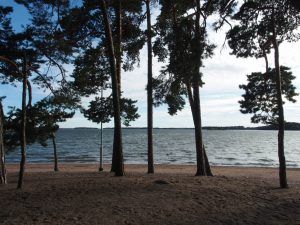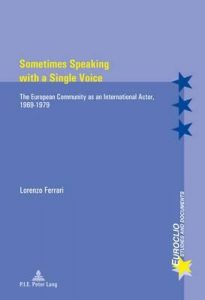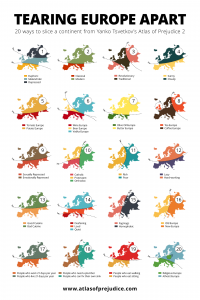Eurooppa-opintojen vieraileva post doc -tutkija Lorenzo Ferrari pohtii syitä saapua Suomeen ja liikkuvuuden merkitystä Euroopan integraation tutkimiselle. Väitöskirjassaan Lorenzo tutki Euroopan yhdentymisen historiaa ja jatkaa nyt post doc -vaiheessa samojen aihe-alueiden parissa. Suomen-vierailu tarjoaa italialaistutkijalle erilaisen näkökulman ja erilaisen akateemisen yhteisön, joka on ”lähes yhtä miellyttävä ja hiljainen kuin suomalainen maisema”.
Since I have come to Finland as a visiting fellow, there are three questions that people often ask me. Are you a student? (Finns graduate quite late, I reckon.) Do you own an expensive car? (I do not, despite the surname.) Why did you decide to come to Turku? Well, to some extent one could say that I did not decide to come to Turku, it was Turku deciding to come to me: first I read of a research opportunity here, then came the choice to apply for it (after checking where exactly Turku was, to be honest).
It was a good choice, since the fellowship is offering me the chance to focus on research and to get to know a university system different from the ones I was more familiar with. The academic environment here seems almost as quiet and pleasant as the Finnish landscape and people – a breathing pause from the turf wars and dire straits of the Italian university system, which make it a much less pleasant environment for researchers.

There are many reasons why I thought that it could be a good idea to move to Finland for a while, but two reasons are closely related to my own research interests. First, I am interested in European history and in the process of European integration, and it is hard to grasp Europe’s traits by remaining always in one single place, always talking and listening to the same people. Europe is a very diverse continent, so it is essential to move around and be exposed to different perspectives and realities.
In this respect, Finland was especially interesting from me. During the last decade a strong narrative has emerged, juxtaposing Northern and Southern Europe – especially because of the Euro crisis. As a Southerner, it was interesting for me to get to know better the history and culture of what is one of the most Northern countries in the EU, both in geographical and political terms. By coming here, one can better understand the differences and appreciate the similarities.
Moreover, to look at Europe from Finland’s perspective is interesting for me because of the relatively peripheral location of this country. In the last years, I have lived in Northern Italy, Brussels, Paris, England: to a large extent, these regions are placed at the hearth of Europe and are highly interconnected. Finland offers the chance to look at a different yet important region of Europe – one which is not always very well known outside.

Apart from offering a different vantage point on Europe, my stay in Turku directly contributes to the development of my current research project. In the last years, during my PhD, I focused on the history of the European Community, and in particular of the early phase of its activity on the global stage. At the end of that project, I was left with the impression that the international activity of the EC had quite a few points in common with the activity of the Nordic countries, but this relationship was still largely unexplored: by staying in Turku, I am encouraged to explore it.
There were at least two types of connections between the EC and the Nordic countries as international actors. As it still happens to the EU nowadays, the EC was not always cohesive when it tried to act on the global stage. Its members were broadly divided in three camps: France and Britain; a group of “progressive” countries like Denmark, Ireland and the Netherlands; and the other member states. It is really hard to understand the initiatives and positions of the “progressive” camp without looking at the Nordic countries as well, since they were often imitating and coordinating with each other.

The other connection between the EC and the Nordic countries has to do with the discourse underlying their international activity – the image of themselves that they tried to project, the values that they claimed to pursue, the frames that they used to make sense of international politics. Both the EC and the Nordic countries stressed very much the values and virtues of liberalism, multilateralism, dialogue and cooperation. They both were active in the fields of human rights promotion and development cooperation, and they both tried to escape the Cold War logic of superpowers’ confrontation. They did that in different ways, but similarities did exist nonetheless.
To look at those ambitious visions of the international order and of the European project invites to reflect upon the changes that both of them are now experiencing. In the context of the current crisis, fundamental traits of the European project are being renegotiated, with changing attitudes of citizens and governments towards it and unclear prospects for the future. It is hard to understand where the current developments will lead – but to look at them from a long-term perspective and a large perspective can hopefully be helpful.
Text: Lorenzo Ferrari, PhD. Lorenzo graduated in international studies and history at the university of Bologna and has written his PhD at the IMT Institute for Advanced Studies in Lucca, Italy.